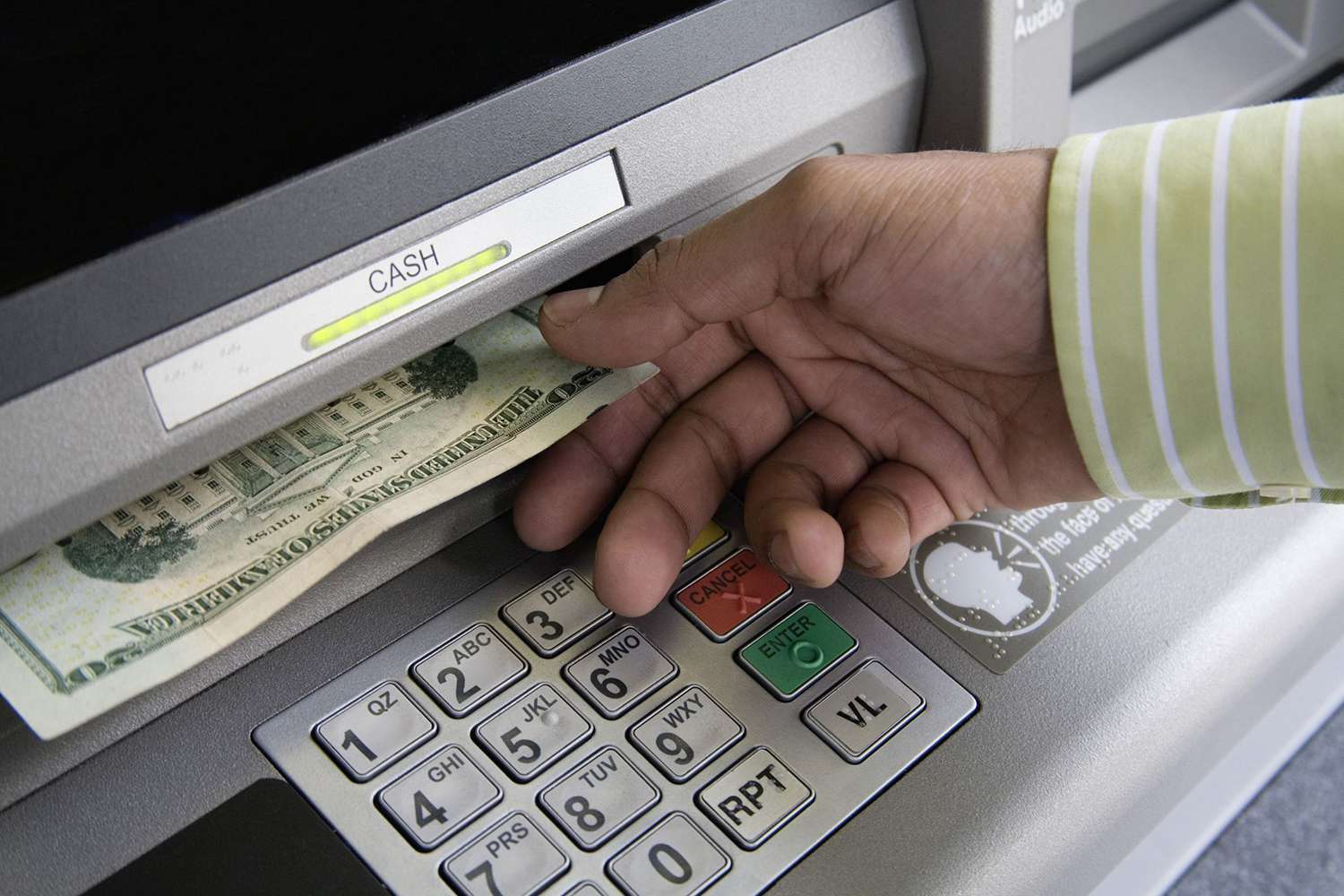

Finance
What Does Delinquent Credit Mean
Modified: February 21, 2024
Discover the meaning of delinquent credit in the world of finance. Understand the consequences and how to manage it effectively to secure your financial future.
(Many of the links in this article redirect to a specific reviewed product. Your purchase of these products through affiliate links helps to generate commission for LiveWell, at no extra cost. Learn more)
Table of Contents
- Introduction
- Definition of Delinquent Credit
- Causes of Delinquent Credit
- Effects of Delinquent Credit
- How Delinquent Credit Affects Your Credit Score
- Strategies for Dealing with Delinquent Credit
- Steps to Improve Delinquent Credit
- Consequences of Ignoring Delinquent Credit Issues
- Final Thoughts on Delinquent Credit
Introduction
Welcome to the world of credit, where finances can be both exhilarating and challenging. As you navigate through the realm of borrowing and lending, it’s crucial to understand the concept of delinquent credit and its impact on your financial well-being.
Delinquent credit refers to a situation where a borrower fails to make payments on their outstanding debt obligations within the specified timeframe. This non-payment can occur on various types of loans, including credit cards, personal loans, mortgages, or auto loans.
When you become delinquent on your credit, it can have adverse consequences on your financial standing, credit score, and overall borrowing potential. It’s essential to comprehend the causes of delinquent credit, its effects, and most importantly, the strategies and steps you can take to overcome this predicament.
In this article, we will delve into the intricacies of delinquent credit, helping you grasp its significance and empowering you with the knowledge to mitigate its impact. Whether you’re currently facing delinquency or simply looking to educate yourself on the topic, we’ve got you covered.
So, let’s dive in and explore what delinquent credit really means and how it can affect your financial future.
Definition of Delinquent Credit
Delinquent credit is a term used to describe the status of a borrower who fails to make timely payments on their outstanding debt obligations. When a borrower becomes delinquent, it means they have missed one or more payments on their credit accounts, such as credit cards, loans, or mortgages.
The specific timeline for classifying a payment as delinquent may vary depending on the type of credit and the creditor’s policies. Generally, payments that are not received by the due date or within a specified grace period are considered delinquent.
Delinquent credit can be categorized further based on the duration of non-payment:
- 30-day delinquency: When a payment is not made within 30 days of the due date, it is considered 30 days delinquent.
- 60-day delinquency: If a borrower fails to make a payment for 60 days, the delinquency status is escalated to 60 days.
- 90-day delinquency: After 90 days of non-payment, the account is typically considered 90 days delinquent. At this stage, the consequences start to become more severe.
- Charge-off: If a borrower fails to make payments for a prolonged period, usually six months or more, the creditor may charge off the debt. A charge-off does not mean the debt is forgiven but rather that the creditor considers it unlikely to be collected.
It’s important to note that delinquent credit is different from default. Delinquency refers to missed payments, while default occurs when a borrower has completely failed to repay the debt, usually after an extended period of delinquency.
Understanding the definition of delinquent credit is crucial for managing your financial responsibilities and preventing your credit from deteriorating further. By recognizing when you are delinquent and taking appropriate measures, you can minimize the negative impact on your creditworthiness and regain control of your financial situation.
Causes of Delinquent Credit
Delinquent credit can arise from various factors, often stemming from financial difficulties or unforeseen circumstances. Let’s explore some common causes of delinquent credit:
- Financial hardship: Job loss, reduced income, unexpected medical expenses, or other financial emergencies can make it difficult for borrowers to meet their payment obligations on time.
- Lack of budgeting and financial management: Poor financial planning, overspending, and living beyond one’s means can lead to a shortage of funds for debt repayment, resulting in delinquent credit.
- Divorce or separation: The financial strain of divorce or separation can disrupt individuals’ ability to make timely payments and manage their debt.
- Unexpected life events: Death in the family, natural disasters, or other unforeseen life events can create financial instability, making it difficult to keep up with debt payments.
- Lack of awareness or understanding: Some borrowers may not fully comprehend the terms and conditions of their credit agreements, leading to missed payments and delinquent credit status.
- Incorrect billing or administrative errors: In some cases, delinquency can occur due to errors in billing or administrative processes, such as incorrect payment allocations or failure to update contact information.
It’s worth noting that regardless of the cause, delinquent credit can have significant consequences on an individual’s financial health and credit standing. Therefore, it’s important to be proactive in addressing any signs of delinquency and seek appropriate assistance when necessary.
By understanding the common causes of delinquent credit, borrowers can take steps to prevent or mitigate the risk of falling into delinquency. This may involve establishing a solid budget, emergency savings, and seeking financial counseling or assistance during challenging times.
Next, we’ll explore the effects of delinquent credit and the impact it can have on your credit score and overall financial well-being.
Effects of Delinquent Credit
The effects of delinquent credit can be far-reaching and have a significant impact on your financial life. Let’s explore some of the key effects:
- Negative impact on credit score: Delinquent credit can lower your credit score, making it more challenging to qualify for future loans or credit cards. It indicates to potential lenders that you may be unreliable or high-risk as a borrower.
- Hindered borrowing opportunities: Lenders are likely to view borrowers with delinquencies as high-risk, which may result in loan denials or higher interest rates on approved loans. This can limit your ability to access credit when you need it most.
- Increase in interest rates: Even if you’re able to secure credit after delinquency, it’s likely that you’ll face higher interest rates. Lenders may consider you a higher risk and charge higher rates to compensate for the potential loss.
- Collection efforts: As delinquency progresses, creditors may initiate collection efforts to recover the overdue payments. This can involve frequent phone calls, letters, or even legal actions to obtain the outstanding debt.
- Damage to financial reputation: Delinquent credit can tarnish your financial reputation, making it challenging to establish trust with future creditors. It may take time and effort to rebuild a positive credit history once delinquencies are resolved.
- Emotional and mental stress: Financial difficulties resulting from delinquent credit can lead to emotional distress, anxiety, and strain on personal relationships. The burden of dealing with delinquency can be overwhelming and impact overall well-being.
It’s important to remember that the effects of delinquent credit are not permanent. With proactive steps and a commitment to financial responsibility, you can overcome the challenges and rebuild your creditworthiness over time.
Next, we’ll explore how delinquent credit affects your credit score and the steps you can take to improve it.
How Delinquent Credit Affects Your Credit Score
Delinquent credit has a significant impact on your credit score, which is a numerical representation of your creditworthiness. Understanding how delinquency affects your credit score is crucial for improving your financial standing. Here are the key factors:
- Payment history: Payment history is the most critical factor in determining your credit score. Delinquency, such as late or missed payments, can significantly lower your score. The more recent and severe the delinquency, the greater the negative impact on your credit score.
- Amount owed: The amount you owe on your credit accounts, also known as credit utilization, is another crucial factor. Delinquency can increase your overall debt burden, leading to a higher credit utilization ratio, which can lower your credit score.
- Length of credit history: Delinquency affects the length of your credit history. If a delinquency occurs on an account with a long positive payment history, it can have a more significant negative impact on your credit score compared to a newer credit account.
- Credit mix: Your credit mix refers to the types of credit accounts you have, such as credit cards, loans, or mortgages. Delinquency across multiple credit lines can have a more detrimental effect on your credit score than delinquency on a single account.
- New credit applications: Delinquency can make it challenging to obtain new credit, as lenders may view you as a high-risk borrower. Frequent credit applications during a delinquent period can further lower your credit score.
It’s important to note that the exact impact of delinquent credit on your credit score will vary based on individual circumstances and the severity of the delinquency. Generally, the more recent and severe the delinquency, the more damage it can cause to your credit score.
To minimize the negative impact on your credit score, it’s crucial to address delinquent credit as soon as possible. By making consistent, on-time payments and working towards resolving any outstanding delinquencies, you can gradually rebuild your credit and improve your score over time.
Next, we’ll discuss effective strategies for dealing with delinquent credit and steps you can take to improve your financial situation.
Strategies for Dealing with Delinquent Credit
Dealing with delinquent credit can be overwhelming, but there are effective strategies you can implement to regain control of your financial situation. Here are some steps to consider:
- Assess your financial situation: Begin by taking a comprehensive look at your current income, expenses, and outstanding debts. Understanding your financial position will help you develop a plan to address delinquencies.
- Contact your creditors: Reach out to your creditors and explain your situation. They may be willing to work with you to develop a repayment plan or offer alternative solutions to help you manage your delinquent credit.
- Create a budget: Develop a realistic budget that ensures you can cover your essential living expenses while allocating funds towards debt repayment. Cut back on discretionary spending and prioritize paying off delinquent accounts.
- Negotiate with your creditors: Explore options for negotiating with your creditors, such as requesting lower interest rates or reduced payment amounts. Many creditors are open to repayment arrangements that fit within your financial capabilities.
- Consider debt consolidation: If you have multiple delinquent accounts, consolidating your debts into a single loan or credit line may make it easier to manage your payments. This can also help simplify the repayment process.
- Seek professional assistance: If you find it challenging to navigate your delinquent credit situation on your own, consider speaking with a credit counselor or financial advisor. They can provide expert guidance and help you develop a personalized debt management plan.
- Stay committed and consistent: Rebuilding your credit and resolving delinquencies takes time and effort. Stay committed to making regular, on-time payments and improving your financial habits to ensure a positive long-term outcome.
Remember, every individual’s financial situation is unique, and the strategies that work for one person may not be suitable for another. It’s essential to assess your circumstances and choose strategies that align with your goals and abilities.
Now that you have an understanding of strategies to deal with delinquent credit, let’s explore steps you can take to improve your credit and overcome the negative effects of delinquency.
Steps to Improve Delinquent Credit
Improving your delinquent credit is possible with consistent effort and a proactive approach. While it may take time to fully recover, taking the following steps can help you improve your creditworthiness and mitigate the negative effects of delinquency:
- Pay off delinquent accounts: Start by paying off your delinquent accounts as soon as possible. Focus on bringing these accounts up to date to demonstrate your commitment to responsible credit management.
- Make on-time payments: Going forward, make it a priority to consistently make on-time payments on all of your credit accounts. Timely payments will help rebuild your payment history and improve your creditworthiness.
- Reduce credit card balances: Lower your credit card balances to improve your credit utilization ratio. Aim to keep your balances below 30% of your credit limit to demonstrate responsible credit usage.
- Build a positive credit history: Open new credit accounts, if necessary, and use them responsibly. Make small, manageable purchases and pay off the balances in full each month to build a positive credit history.
- Check your credit reports: Regularly review your credit reports from the major credit bureaus – Experian, Equifax, and TransUnion. Dispute any inaccuracies you find and ensure that your reported information is correct.
- Monitor your progress: Keep track of your credit score and monitor any changes or improvements. This will help you stay motivated and identify areas where you can continue to make progress.
- Practice responsible financial habits: Develop good financial habits, such as creating a budget, living within your means, and maintaining an emergency fund. These practices will help you avoid future delinquencies and improve your overall financial health.
- Seek professional help if needed: If you’re overwhelmed or struggling to manage your delinquent credit, consider seeking assistance from a credit counseling agency or a reputable credit repair company. They can provide guidance and support during the credit improvement process.
Remember, improving your delinquent credit takes time and patience. Focus on making positive financial choices and staying committed to your credit improvement goals. Over time, your credit score will gradually improve, opening up opportunities for better borrowing terms and financial stability.
Finally, let’s discuss the potential consequences of ignoring delinquent credit issues and why it’s important to address them promptly.
Consequences of Ignoring Delinquent Credit Issues
Ignoring delinquent credit issues can have severe consequences that can affect your financial well-being in the long run. Here are some potential outcomes of neglecting delinquent credit:
- Continued damage to your credit score: Ignoring delinquent accounts won’t make them go away. In fact, the longer you ignore them, the more damage they can cause to your credit score. This can make it extremely challenging to qualify for loans or credit in the future.
- Increased debt and financial obligations: Ignoring delinquent credit can lead to mounting debt. Late fees, penalties, and interest charges can accumulate, making it even more difficult to resolve the delinquencies and regain control of your finances.
- Legal actions and collections: Ignored delinquent accounts may result in creditors taking legal action against you. This can involve wage garnishment, asset seizure, or even lawsuits. Additionally, creditors may employ debt collection agencies, which can be aggressive in their pursuit of collecting the outstanding debt.
- Limited borrowing opportunities: Ignored delinquent credit can severely limit your ability to access credit. Lenders may reject your loan applications, or if approved, offer higher interest rates and less favorable terms due to the perceived risk associated with your delinquencies.
- Emotional and psychological stress: The weight of delinquent credit can weigh heavily on your mental and emotional well-being. The constant fear of creditor calls, collection efforts, and the uncertainty about your financial future can cause stress, anxiety, and strain in personal relationships.
It’s essential to take action and address delinquent credit issues promptly. Ignoring them will only exacerbate the problems and make it more challenging to recover financially. By acknowledging the situation and implementing strategies to resolve the delinquencies, you can mitigate the negative consequences and set yourself on a path to financial stability.
Finally, let’s conclude with some final thoughts on delinquent credit.
Final Thoughts on Delinquent Credit
Delinquent credit can have a significant impact on your financial well-being, but it doesn’t have to define your future. By understanding the causes, effects, and steps to address delinquencies, you can take control of your financial situation and work towards improving your creditworthiness.
Remember, delinquent credit is not permanent. With a proactive approach and commitment to responsible financial habits, you can overcome the challenges and rebuild your credit over time.
It’s crucial to assess your financial situation, communicate with your creditors, and develop a realistic plan to address delinquencies. Take advantage of resources such as credit counseling agencies or reputable credit repair companies if you need assistance in managing and resolving delinquent credit issues.
Additionally, stay vigilant about monitoring your credit reports and regularly review your credit score. Celebrate the progress you make along the way and stay committed to making timely payments and maintaining responsible financial habits.
Remember, prevention is key – being proactive in managing your finances and avoiding delinquencies in the first place is the best approach. Practice good budgeting, financial planning, and responsible credit usage to minimize the likelihood of falling into delinquency.
Ultimately, overcoming delinquent credit requires resilience, determination, and a willingness to learn from past mistakes. By taking the necessary steps and staying committed to your financial goals, you can pave the way for a brighter and more secure financial future.
So, empower yourself with knowledge, take action, and remember that your financial journey is within your control. With time and effort, you can rise above delinquent credit and achieve financial success.














